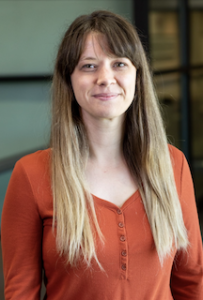UW–Madison’s Global Higher Education (GHE) Master’s Degree Program is celebrating its 10th anniversary during the current academic year.
The program, housed in the School of Education’s highly ranked Department of Educational Leadership and Policy Analysis (ELPA), focuses on training future generations of professionals and scholars and is known for its family-like, collaborative learning community that utilizes a cohort model. Students follow the course sequence together, which provides a daily platform for exchanging ideas, sharing experiences, and sharing expertise regarding current and critical issues in international higher education.
As they move through the program together, students have opportunities to expand their professional networks, build lifelong friendships, and provide support to each other among cohort fellows. Students who have completed the program describe the cohort experience as one of the most valuable aspects of the GHE program, which features a good mix of students who grew up in the United States learning alongside students who are coming to Madison from abroad.
GHE also centers its efforts on connecting education with career development, including embedded internships, and on individualized mentoring and career coaching from Weijia Li, the GHE program director.
To further help people understand the Global Higher Education Master’s Degree Program, the School of Education’s communications team caught up with some alumni of the program.
Following is one such Q&A conducted with Ayse Okur, who graduated from the program in 2018. Okur, who grew up in Turkey, today is pursuing a doctorate with UW–Madison’s Department of Educational Leadership and Policy Analysis.

Where did you do your undergraduate studies? I went to Uludag University in Turkey.
How did you find out about the GHE Master’s Degree Program, and how did you end up at UW Madison? At the time, I was looking into master’s programs focused on higher education and leadership, but with a more specific focus on international education, policies, and practices that specifically targeted international students. At the time I applied, this program was the only in-person program in the U.S. providing this kind of training. It was the best fit for me.
Weijia Li often talks about the family atmosphere of the GHE program. Can you tell me what that family atmosphere is like? This family atmosphere definitely starts as early as the application and admissions process, and extends beyond the program. I know that I made some lifelong friends. I’m still in touch with many of the peers who were in my cohort. Throughout the program, Weijia really nurtured this atmosphere by creating opportunities for us to get together and socialize. And it was really just beyond being peers in a program or classmates … It was like, real, real friendships.
What aspects of the program were most important to you? I would say it was how the program was so individualized and supportive. Weijia created room for us to be independent and make our own decisions. I also enjoyed having the cohort model where we had the same classes and prescribed pathways.
Do you feel like the program prepared you well for what you wanted to do next? My interest was always to pursue a PhD program, and it definitely helped. I came here with a research orientation, but I learned a lot about the entire field of higher education and what was really happening — especially in international and global higher education. Then I was really able to take these practical insights into my research approaches.
What’s your focus for the research you’re doing right now? It’s more educational equity in higher education. So I am still focusing on student groups who are marginalized in higher education. Right now my specific focus is on community colleges.
Do you know what you want to do next? I’m debating between two choices. I’m interested in pursuing a career as a full-time researcher, but I’m still considering becoming a faculty member so I can do research and teach.